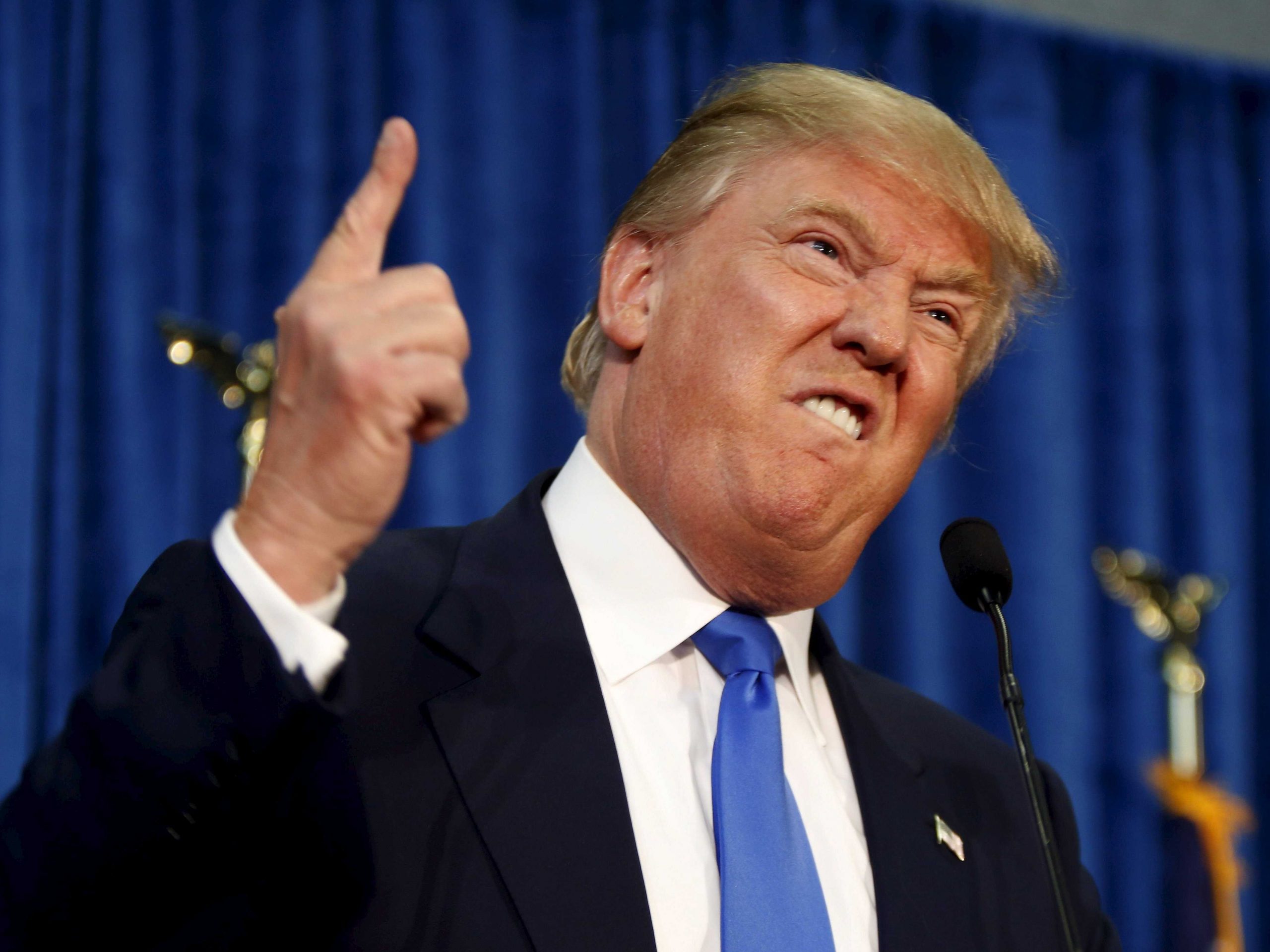There's a popular saying about judging a society by how it treats its worst-off. The implication is we're all instinctively wired to hate those beneath us in the socio-economic pecking order, so it takes a bit of effort to do otherwise. Journalism has its own version of this mantra: you judge the fairness of a reporter not from his stories on heroes, but villains. No one will protest if you sacrifice the truth to portray someone already hated in a bad light, but that's precisely why you shouldn't.
Charity and fairness has become conspicuously absent in media coverage of the American election. Most mainstream reporting on Donald Trump — now unanimously regarded as the villain of the story — hews religiously to a few iron laws:
1) Donald Trump is the single worst human being who has ever lived. He possesses no redeeming qualities whatsoever.
2) The election of Donald Trump will be an apocalyptic event of unprecedented destruction for both the United States and the world.
3) The purpose of any interview with Donald Trump is to generate embarrassing quotes that can be used to damage the candidate and his campaign. If Donald Trump does not say anything particularly damning, it is the reporter's obligation to reposition whatever Donald Trump did say, including sarcasm, jokes, and hyperbole, into a damning context.
4) The purpose of any opinion column on Donald Trump is to express the author's personal dislike of the man using analogies and adjectives more dramatic and florid than have been published to date.
5) Anyone who supports Donald Trump sits on a narrow spectrum between frighteningly stupid and psychopathically evil.
To quote The Simpsons, I have tried to like Donald Trump "on a personal level, on an ironic level, as a novelty, as camp, as kitsch, as cautionary example, but nothing works." That said, if Trump becomes president, all evidence suggests one of two outcomes is most likely:
1) He would be a figurehead president, involved in setting the government's agenda but delegating most day-to-day responsibility to more substantial people in his administration. This, according to a John Kasich advisor who spoke to the New York Times, is Trump's preferred scenario, wherein the VP runs "domestic and foreign policy" while Trump focuses on "making America great again."
2) He would be impeached. The constitution says Congress can impeach presidents for "high crimes and misdemeanors" — a common-law term meaning "basically anything." Ordinarily, impeachment is extraordinarily difficult, as the high voting thresholds require bipartisan cooperation, but since Trump has proven uniquely talented at frustrating liberals and conservatives alike, he is an unprecedentedly eligible candidate. Mike Pence may wind up serving most of his term.
Both of these scenarios are unusual and difficult, and would be trying and distracting for the country. But you'll notice they are not blood-raining-from-the-sky Hieronymus Bosch nightmares come to life, in contrast to how a possible Trump presidency is increasingly portrayed in the press. Trump is an odd fellow who has lazily promoted some impossible ideas. Like many old men, he is frequently offensive and hurtful without intending to be. To portray such a clumsy and silly man in Hitlerian terms — which has become distressingly commonplace — is to ignore the vast territory between unpleasant and evil.
Though it's fashionable to claim America is wallowing in mad ignorance, it's sensationalism more than anything that energizes our era. Islamic terrorism is a sensationalistic form of war that uses shock and gore to intimidate powerful victims into feelings of powerlessness. Black Lives Matter is a sensationalistic movement that draws hysteric over-generalizations from violent incidents in an age of low violence. Social media is a sensationalistic medium of communication that encourages sharing headlines that scream outrage and pander to fear.
And Donald Trump, is, of course, a sensationalistic presidential candidate. His style is obnoxious flamboyance that combines exaggeration, humor, ignorance, and blunt honesty in equal proportion. An impartial media existing in less sensationalistic time would seek to cut through this noise and acknowledge the surprisingly ordinary man beneath it, a man with ideas that are not unpopular or uncommon, but often unrealistic and uninformed in the way many popular and common things are.
The media we have, however, has chosen to fight fire with fire, and the result has been an unbearable excess of heat. It's made Trump appear unelectable, and perhaps he is and deserves to be. But it has come at tremendous cost to the professionalism and dignity of political reporting, which wasn't exactly in a stellar state before.
Photo Credit: Huffington Post
Written by J.J McCullough






